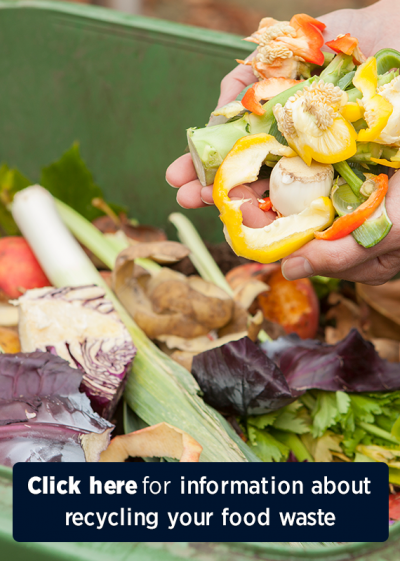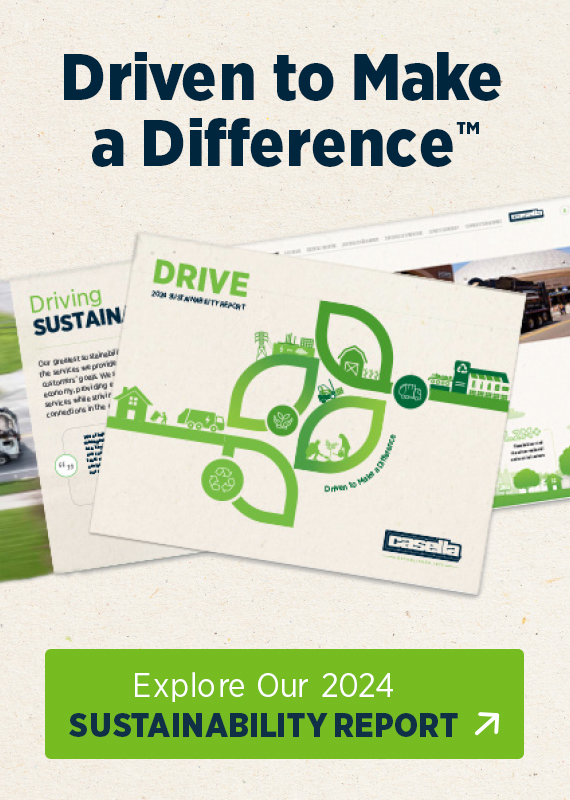Did you know that approximately 40% of the food produced in the United States goes uneaten?
We’ve been providing food waste solutions for more than 20 years and can help you meet your sustainability goals.
Composting
Composters process your food scraps into nutrient-rich soil products. We operate compost facilities in Maine and Vermont and supply feedstocks to several other professional composters throughout the northeast.
Anaerobic Digestion
Anaerobic digesters process your food scraps into renewable energy and soil products. We operate two of them in Massachusetts and have partnered with others throughout the northeast.
To view an example of the Anaerobic Digestion process, click here.
Commercial Collection
We provide food waste collection service to hundreds of businesses and institutions throughout the northeast. Call 1-800-CASELLA to learn if this service is available in your area.
Residential Collection
Many municipalities are working to introduce residential food waste collection. We provide collection and processing services in support of these innovative pilots, including both curbside pickup and drop-off solutions.
FoodCycler® by Casella
FoodCycler is a countertop appliance that grinds and dries your food scraps. At the touch of a button, it reduces the volume of your food scraps by 90% and creates a dry, nutrient-rich product that’s great for your backyard compost or local drop-off. Click here to learn more.
Customized Signage, Bins, Education
Food waste diversion is new to many people, and successful programs must provide thoughtful education to drive awareness and behavior change. We work with our customers to develop customized signage, bin configurations, and training programs for food waste.
On-Site Solutions
If your organization generates large quantities of food waste, you may be interested in on-site processing solutions to improve the recyclability of your materials without distracting you from your daily business. Let us help you explore the options.
Closed-Loop Recycling Solutions
We’re helping many leading businesses find ways to “close the loop” by processing their food scraps into soil products and renewable energy which they can use in their own operations. For example, a college whose landscaping uses compost made from their own food waste; or an industrial facility whose power comes in part from the anaerobic digesters that process their organic residuals.
Frequently Asked Questions
Food Waste FAQs
Q. What is the best way to manage my food waste?
A. The best solution is to prevent food waste at the source. Edible food should be donated to those in need when possible. From there, we can help you evaluate your options and redirect the rest to compost, digestion, or animal feed.
Q. Can food waste go in my recycling bin?
A. No. Food waste cannot be processed in recycling facilities, which are designed to sort clean materials (see casella.com/recyclebetter). Food waste needs to be collected separately and taken to a specialized facility, such as a compost site or anaerobic digester, for processing.
Q. How does food waste impact the environment?
A. According to national data, forty percent of the food grown in this country goes uneaten; by reducing food waste, we could save water, energy, and land. When food goes to a landfill or incinerator, the carbon and nutrient value is lost; by returning it to soil through compost or other methods, we can rebuild depleted farmland. More information and statistics can be found here.
Q. Is food waste recycling required by law?
A. Many states have food waste recycling laws, including the ones linked below. New requirements are phasing in each year, so you should check locally to confirm the rules in your area.
Connecticut
Maryland
Massachusetts
New Hampshire
New York
Vermont





